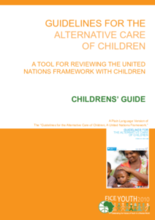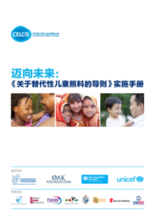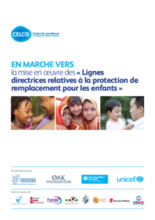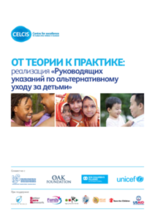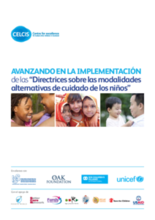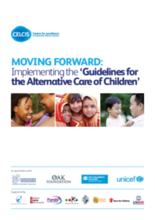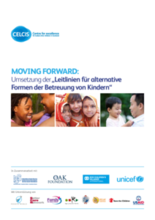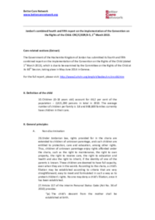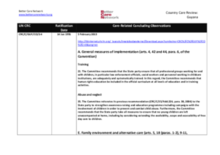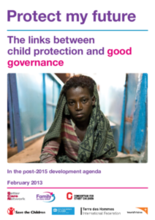Displaying 181 - 190 of 372
This booklet from SOS Children’s Villages International was created for young people to explain in a simple manner the main points of the Guidelines for the Alternative Care of Children approved by the United Nations General Assembly in 2009. The booklet helps its young audience think about the principles of alternative care and what these mean for children and families in different situations.
This handbook (in Mandarin) is designed as a tool for legislators, policy-makers, and all professionals and care providers to support the implementation of the Guidelines for the Alternative Care of Children, endorsed by the United Nations General Assembly in 2009.
Ce manuel est conçu comme un outil pour les législateurs, les décideurs politiques, et tous les professionnels afin de soutenir la mise en œuvre des lignes directrices pour la prise en charge alternative des enfants, approuvées par l'Assemblée générale des Nations Unies en 2009
This handbook (in Russian) is designed as a tool for legislators, policy-makers, and all professionals and care providers to support the implementation of the Guidelines for the Alternative Care of Children, endorsed by the United Nations General Assembly in 2009.
Este manual está diseñado como una herramienta para legisladores, responsables de políticas públicas, y todos los profesionales y provedores de cuidados para apoyar la implementación de las Directrices para el Cuidado Alternativo de la Infancia, avalada por la Asamblea General de las Naciones Unidas en 2009.
This handbook, Moving Forward: Implementation of the ‘Guidelines for the Alternative Care of Children,’ is aimed at legislators, policy-makers and decision-makers, as well as professionals and care providers, to support the implementation of the Guidelines for the Alternative Care of Children, endorsed by the United Nations General Assembly in 2009. It explains the key thrusts of the Guidelines, outlines the kind of policy responses required, and describes ‘promising’ examples of efforts already made to apply them in diverse communities, countries, regions and cultures.
This handbook (in German) is designed as a tool for legislators, policy-makers, and all professionals and care providers to support the implementation of the Guidelines for the Alternative Care of Children, endorsed by the United Nations General Assembly in 2009.
The Government of the Hashemite Kingdom of Jordan has submitted its fourth and fifth combined report on the implementation of the Convention on the Rights of the Child (dated 1st March 2013).
This country care review includes the care related Concluding Observations adopted by the Committee on the Rights of the Child as part of its examination during the sixty-second session (14 January- 1 February 2013) of Guyana’s combined second, third and fourth period reports to the Convention on the Rights of the Child, as well as other care-related concluding observations, ratification dates, and links to the Universal Periodic Review and Hague Intercountry Adoption Country Profile.
This paper is part of an inter-agency series on the links between child protection and major development goals. The report focuses on the links between child protection and good governance as they relate to the post-2015 Millennium Development Goals development agenda.

